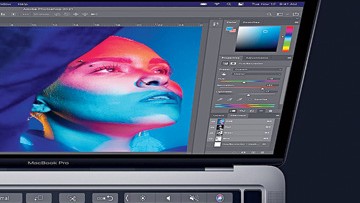Apple’s recent breakup with Intel to focus on its new processor, the M1, is showing positive results. Adobe users trust Macs for a good reason — fast, reliable output. Now it’s faster. The much-anticipated release of Photoshop for Apple’s M1 chip has taken place. This means the software no longer requires the Rosetta emulation software, leading to significant upgrade in performance.
Some perspective. In November last year, Apple launched the M1 MacBook Air, MacBook Pro, and Mac Mini. The idea is to move away from Intel CPUs, towards the M1 or some related Apple-designed processor within two years. Software needs to compiled into machine-specific code or apps meant for Intel Macs needed some form of translation to work on the new chip. Apple makes it happen through preprocessing during installation or, at times, when it’s launched for the first time. Anything that couldn’t be translated in advance is emulated in real-time.
Adobe’s very-popular graphics app Photoshop now supports the latest M1-powered Mac computers without needing the Rosetta emulation software. Photoshop for M1 Macs completes most tasks 1.5 times faster than when running on Intel. Besides the big boost in editing speed, Photoshop is now supposed to feel faster, including how quickly it opens up.
More annoucements. There is a big crowd that uses Photoshop on the iPad. The two big features for this crowd are Cloud documents version history and the ability to work on Cloud documents while offline. The former allows the user to revert to an old version of a file dating back as far as 60 days.
The other big announcement from Adobe is Super Resolution, which lets you quadruple the number of pixels in a photo using artificial intelligence technology. For example, a 12MP smartphone photo becomes a 48MP shot suitable for bigger prints. And a small crop of just 2MP becomes a more presentable 8MP.











